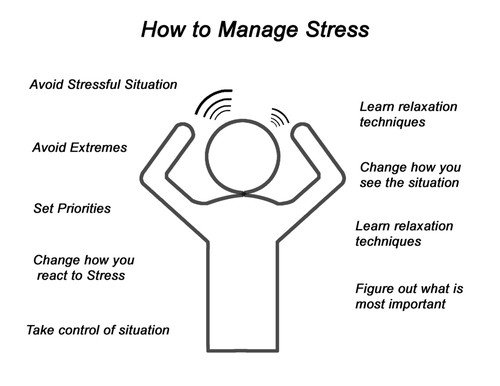
Stress Management is an inevitable part of life. It can come from work, relationships, or simply the daily challenges we face. However, managing stress is crucial for your overall well-being. In this comprehensive guide, we’ll explore effective strategies to reduce stress, improve your mental and physical health, and achieve a better work-life balance. Let’s dive in and discover how to make stress your ally, not your enemy.
Manage Stress for a Better Life
Understanding Stress
Before we delve into stress management techniques, let’s understand what stress is. Stress is your body’s natural response to challenges and threats. It triggers the release of stress hormones, such as cortisol and adrenaline, preparing you for the “fight or flight” response. While stress can be beneficial in small doses, chronic stress can have detrimental effects on your health.
Symptoms of Stress
Identifying the symptoms of stress is the first step in managing it effectively. These symptoms can manifest physically, mentally, and emotionally. Common signs of stress include muscle tension, anxiety, depression, and even physical health issues. Recognizing these symptoms early allows you to take action before stress takes a toll on your well-being.
The Effects of Stress
Stress can affect both your body and mind. It can lead to chronic health conditions, disrupt sleep patterns, and impair cognitive function. Moreover, stress can contribute to the development of anxiety and depression. Understanding how stress impacts your life is essential for taking control of it.
Effective Stress Management Techniques
Relaxation Techniques
One of the most effective ways to manage stress is through relaxation techniques. Deep breathing exercises, meditation, and mindfulness can help calm your mind and reduce stress hormone levels. These practices are simple yet powerful tools in your stress management arsenal.
Work-Life Balance
Balancing work and personal life is crucial for stress management. The demands of a busy career can often lead to excessive stress. We’ll explore strategies for achieving a healthy work-life balance, ensuring you have time to relax and recharge.
Identifying Stressors
To effectively manage stress, it’s essential to identify the causes or stressors in your life. Whether it’s work-related pressure, relationship issues, or financial concerns, pinpointing the sources of stress allows you to develop targeted strategies to address them.
Physical Activity
Regular physical activity is a proven way to reduce stress. Exercise releases endorphins, your body’s natural stress relievers, and promotes relaxation. We’ll discuss how incorporating physical activity into your routine can make a significant difference in managing stress.
Support Networks
Having a good support network is invaluable in times of stress. Friends and family can provide emotional support and a listening ear. Don’t be afraid to reach out and lean on your support system when you’re feeling overwhelmed.
In Conclusion
Stress management is not only about relieving stress but also about maintaining a healthier, happier life. By understanding the causes and symptoms of stress and implementing effective techniques, you can take control of stress and prevent it from taking control of you. Remember, it’s okay to seek support when needed, and with the right strategies, you can make stress work for you, not against you.


